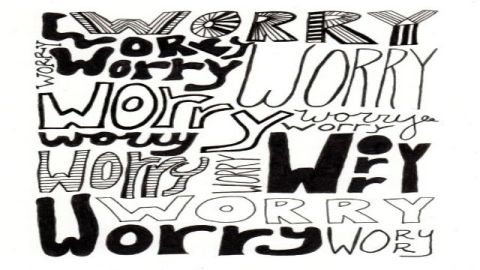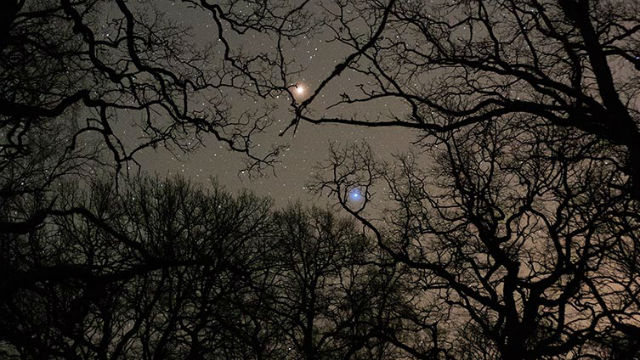Ebola, Organic Food, and Fukushima. Three Dope Slaps About How We Get Risk Wrong.

The goal of this blog is to help raise awareness of what I call The Risk Perception Gap the danger that arises when we worry about some things more than the evidence suggests we need to, or less about some things than the evidence warns we should. These misperceptions are the natural product of a system of risk perception that, all in all, does a decent job keeping us alive, but because of some ancient instincts and mental processes, sometimes gets risk wrong…in dangerous ways.
Here are three examples from the current headlines, all of which clearly demonstrate the Risk Perception Gap…how our subjective perception of risk leads to judgments that feel right but don’t match the facts, and get us into trouble.
~~~ The United Nations today published a report on the cancer deaths so far, and the likelihood of cancer deaths in the future, due to the Fukushima nuclear power plant disaster. You know, the one that freaked out the world about nuclear energy?
In a report titled Levels and effects of radiation exposure due to the nuclear accident after the 2011 great east-Japan earthquake and tsunami the world’s leading experts on the biological effects of ionizing radiation report;
No radiation-related deaths or acute diseases have been observed among the workers and general public exposed to radiation from the accident. The doses to the general public, both those incurred during the first year and estimated for their lifetimes, are generally low or very low. No discernible increased incidence of radiation-related health effects are expected among exposed members of the public or their descendants.
~~~ A study of 600,000 women in England found that eating organic food – you know, the more “natural” and therefore presumably healthier sort of food (repeated studies find minimal nutritional difference between organic and non-organic food) which is supposed to reduce our exposure to pesticides and therefore reduce our risk of cancer, has no such effect.
In a press release headlined Organic food doesn’t lower overall cancer risk, Cancer Research UK states;
Women who mostly or always eat organic foods have the same overall chance of developing cancer as women who never eat it, according to a new study from the UK’s University of Oxford and published in the British Journal of Cancer that followed over 600,000 middle-aged women for nearly a decade.
~~~ Have you heard about how Ebola is spreading!? AAIIGH! The news is full of stories with headlines likeEbola Reaches Capital of Guinea, Stirring Fears and Black Death is so 14th century. Ebola is spreading in West Africa now Ebola is that exotic disease isolated (so far) in exotic places like Guinea or Sierra Leone or Liberia (quick, could you locate any of them on a map?) that causes the scariest sounding death, in which your blood vessels perforate and you bleed internally and out your eyes and nose and pores…to death. No wonder then the frightening news stories ominously warning that “Ebola has killed hundreds in rural Central Africa over the past four decades, but it is unusual for it to reach urban centers.” (It’s out of the jungle! COULD YOU BE NEXT?) Wait. Hundreds of deaths, over 40 years? Compared to, say, the MILLIONS from malaria, and diarrhea from lack of clean drinking water, and HIVAIDS, in the very same region?
Okay, so what if the evidence doesn’t bear out our fears. What’s the matter with a little Better Safe Than Sorry precaution? Well, our excessive fear of radiation from nuclear power plant accidents (in part because it’s human-made, it’s imposed on us – unlike medical radiation or radiation from the sun – it’s invisible, so we feel powerless to protect ourselves, and it’s associated with deeply stigmatized worries about nuclear war) caused Japan, Germany, Switzerland, and Italy to abandon nuclear energy, which emits no particulate pollution (which the World Health Organization estimates is responsible for an estimated 16% of lung cancer deaths, 11% of chronic obstructive pulmonary disease, and more than 20% of ischaemic heart disease and stroke WORLDWIDE…tens of millions of people per year) and no CO2, which contributes to global climate change. And guess what those countries are using more of to make electricity instead? Yup, coal and other particulate/CO2 emitting fossil fuels.
OOOPS!
Our fear of commercially produced food, tied in part to fear of chemical pesticides (in part because these particular chemicals are UNnatural/human-made, invisible, associated with the high pain and suffering of cancer, and imposed on us by industries that have a track record of lying about the potential harms of some of their products, undermining trust, which fuels even more fear), is fueling resistance to crop biotechnology, which could produce all sorts of improvements to nutrition and the viability of food crops in a climate changing world.
OOOPS!
Fear of exotic diseases like Ebola, or West Nile virus when that first went around a few years back (in part because we are more afraid of the unfamiliar, and WAY more afraid of dying in nasty ways), temporarily distracts us from efforts to combat the major killers, which scare us less, in part because they are more familiar, and don’t lead to such gruesome deaths. Just way more DEAD!
OOOPS!
News coverage in this 24/7 new media world magnifies this phenomenon, because what worries us is going to get our attention, and what gets our attention is what feeds the media beast. But the media don’t create these risks, and they certainly didn’t create the innately subjective risk perception system that makes things feel too scary, or not scary enough. That’s intrinsic to human psychology.
But just because this psychology is built into us doesn’t mean we can’t wise up, and recognize that we occasionally make these mistakes, and that such MISperceptions pose all sorts of dangers all by itself. Recognizing the threat of the Risk Perception Gap can get us started toward applying what we know about WHY we make these mistakes to try and make fewer of them.
Until we take those steps we will remain at risk from the the subjective nature of risk perception, and vulnerable to dangers from which we have the knowledge to protect ourselves.





